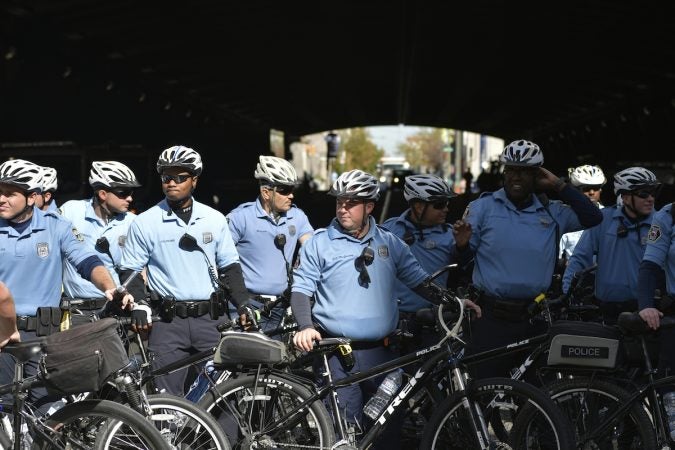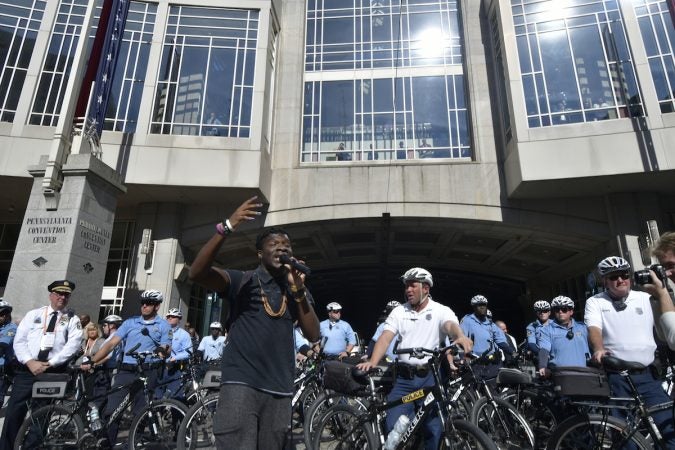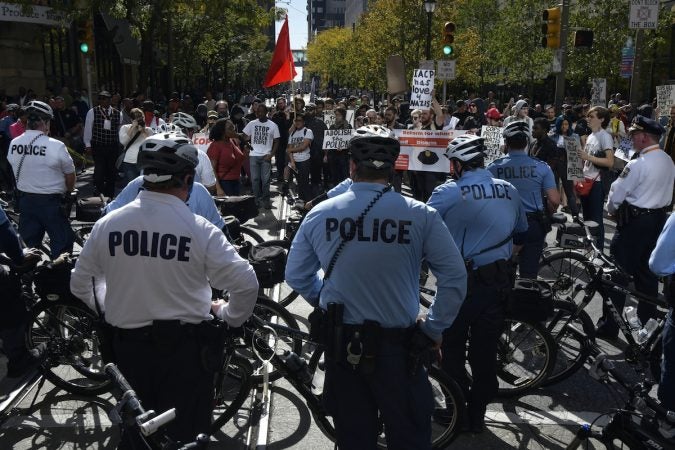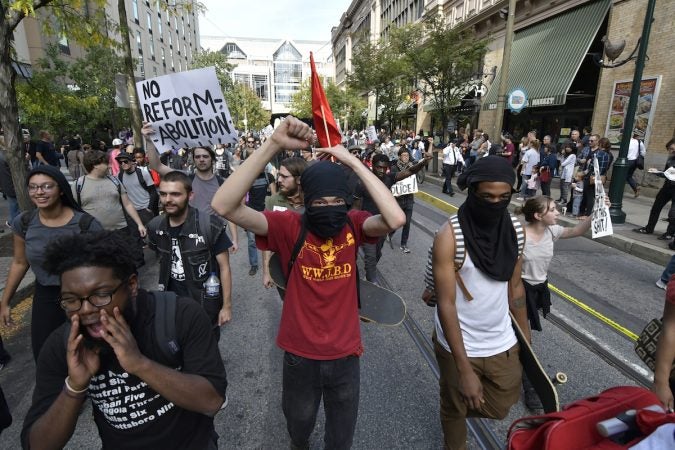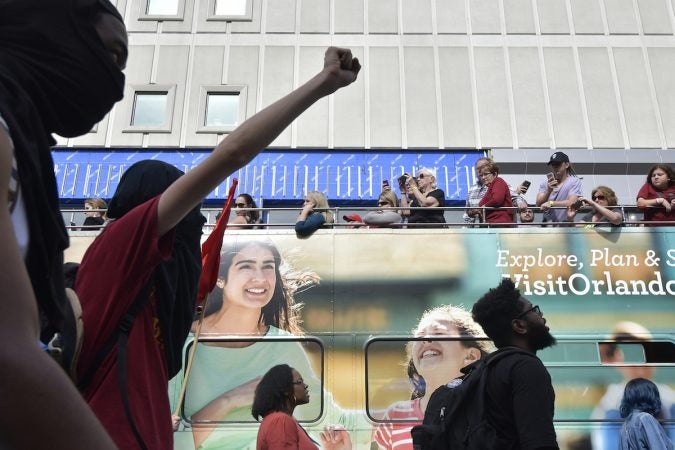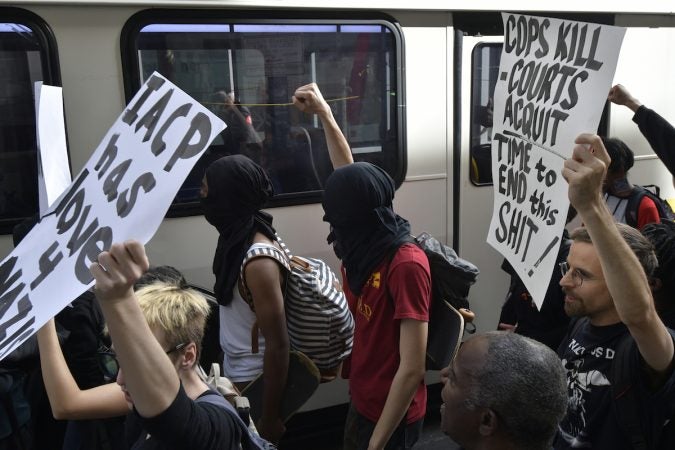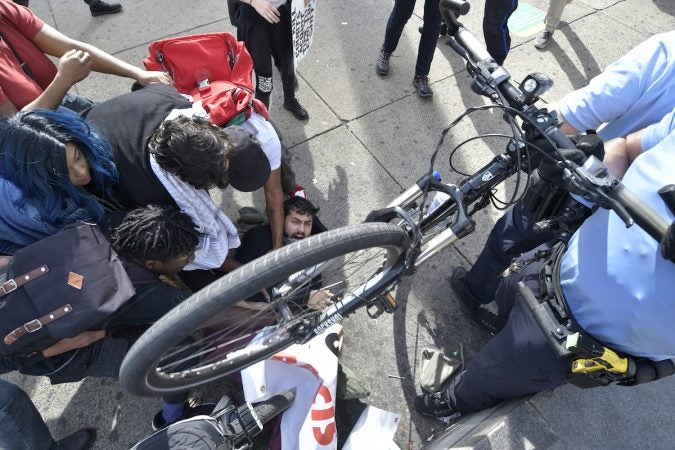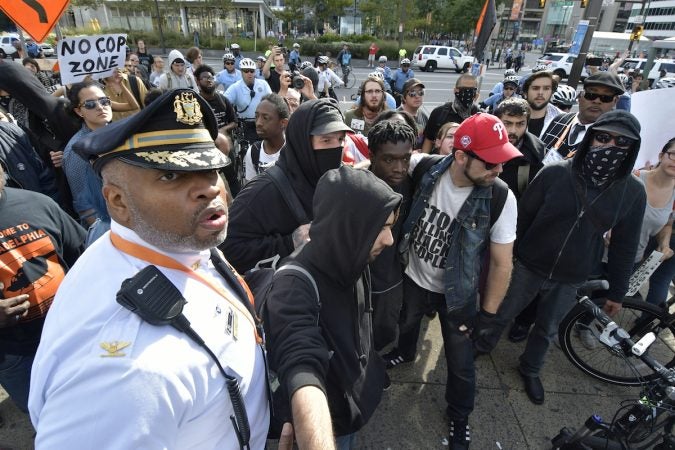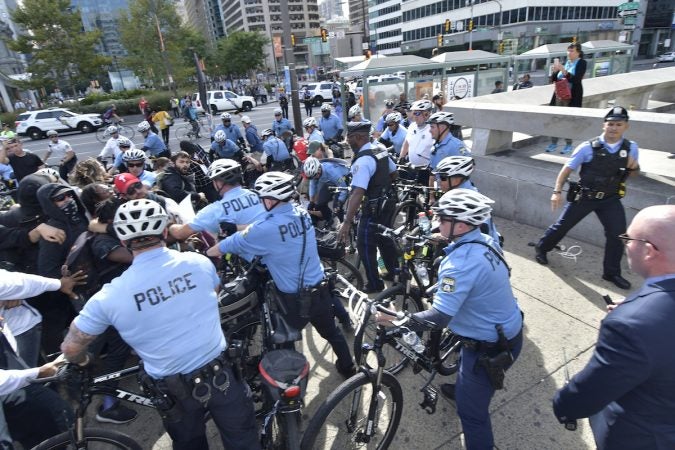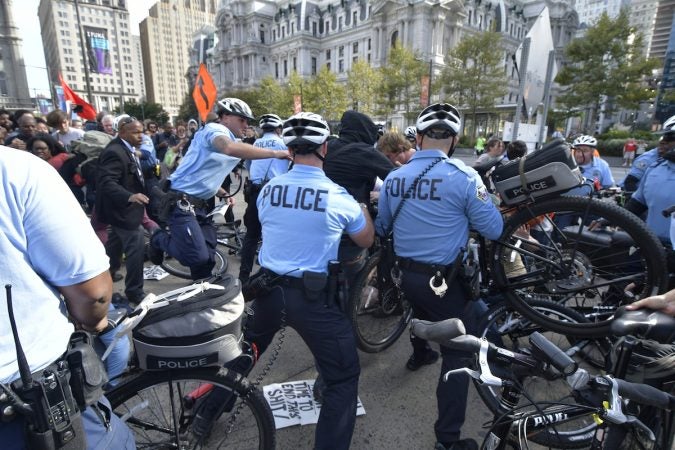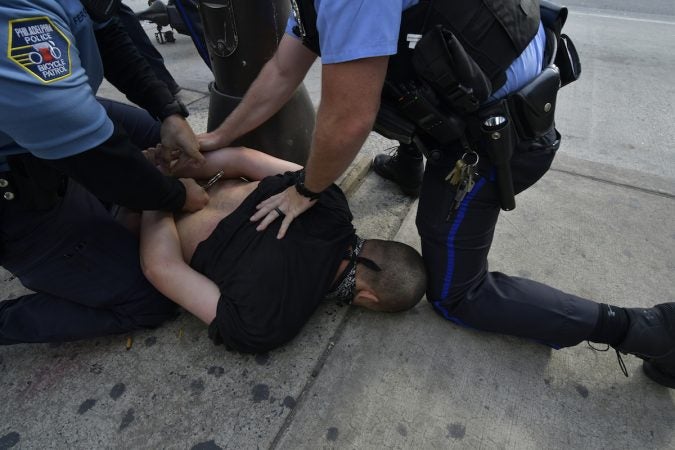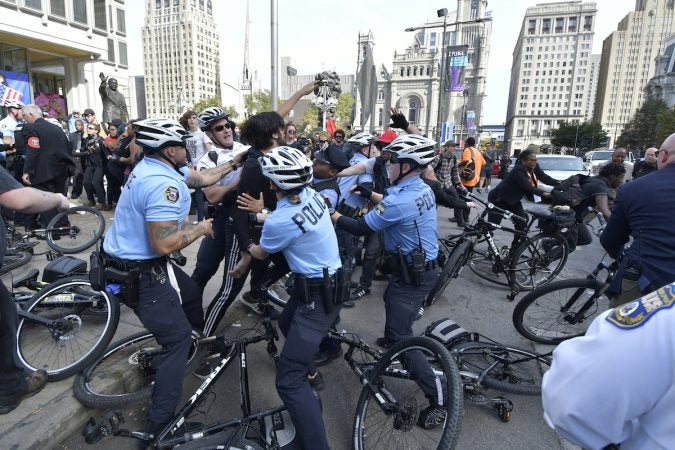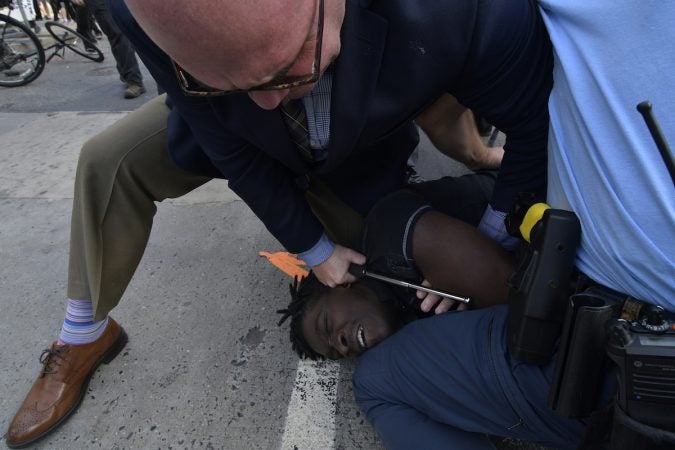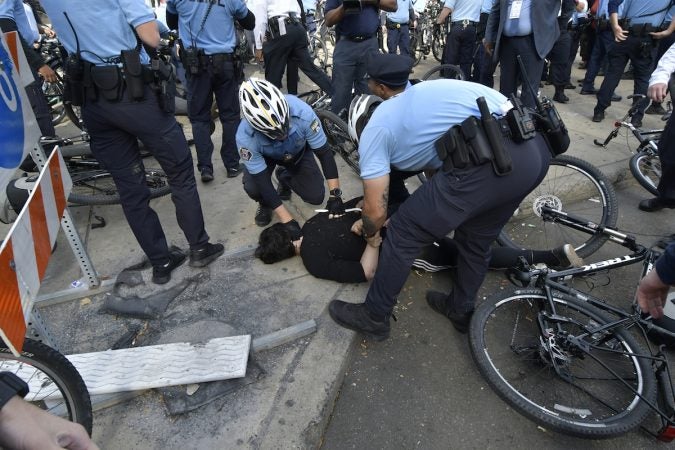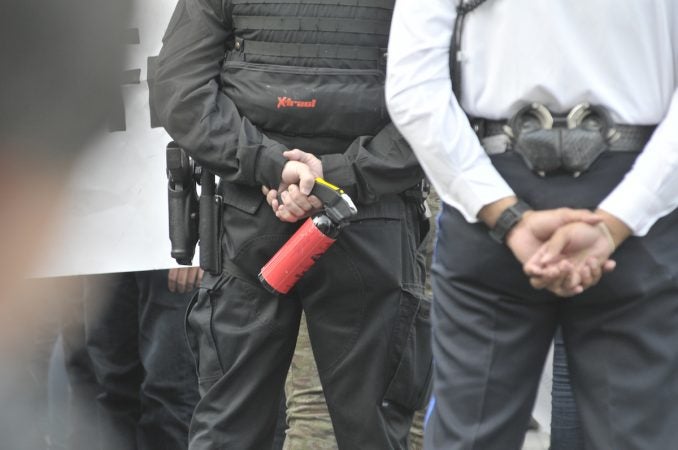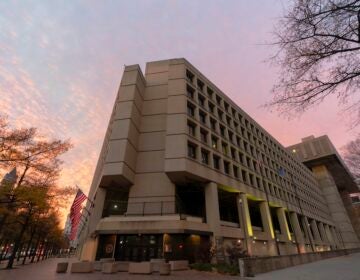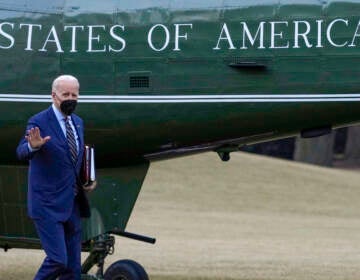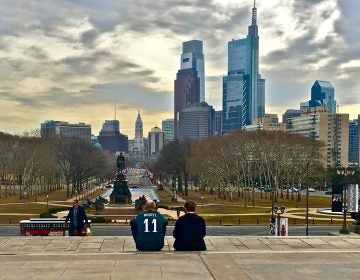At law enforcement conference in Philly, Sessions tells street criminals: ‘we are coming after you’
Sessions' speech went on without incident, but by mid-afternoon protesters that had gathered and marched through the city clashed with Philadelphia officers.
-

US Attorney General Jeff Sessions delivers his remarks on the Project Safe Neighborhoods during the Major Cities Chiefs Association Fall Meeting, at the Pennsylvania Convention Center in Center City Philadelphia, on Saturday October 21, 2017. (Bastiaan Slabbers for WHYY)
-
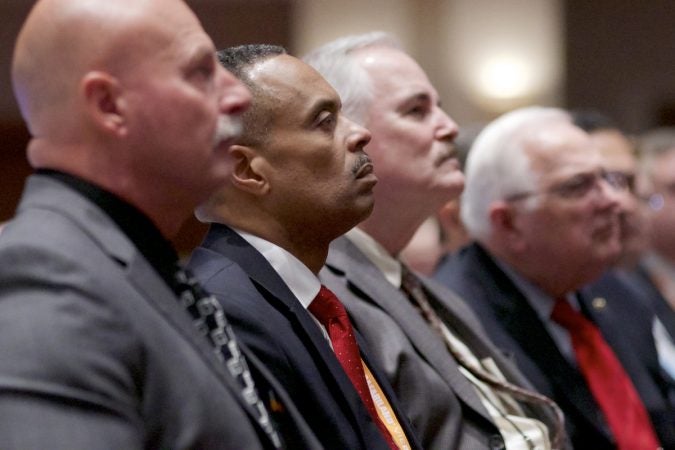
Richard Ross, Jr., Commissioner of the Philadelphia Police Department, listens in the front row as US Attorney General delivers his remarks on the Project Safe Neighborhoods during the Major Cities Chiefs Association Fall Meeting, at the Pennsylvania Convention Center in Center City Philadelphia, on Saturday October 21, 2017. (Bastiaan Slabbers for WHYY)
-
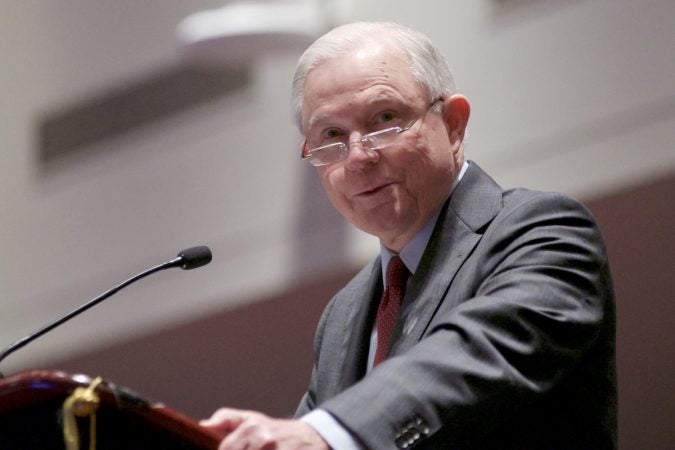
US Attorney General Jeff Sessions delivers his remarks on the Project Safe Neighborhoods during the Major Cities Chiefs Association Fall Meeting, at the Pennsylvania Convention Center in Center City Philadelphia, on Saturday October 21, 2017. (Bastiaan Slabbers for WHYY)
-
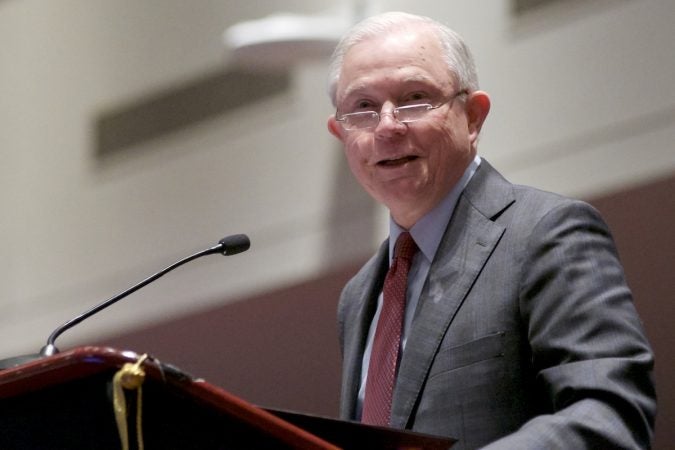
US Attorney General Jeff Sessions delivers his remarks on the Project Safe Neighborhoods during the Major Cities Chiefs Association Fall Meeting, at the Pennsylvania Convention Center in Center City Philadelphia, on Saturday October 21, 2017. (Bastiaan Slabbers for WHYY)
-
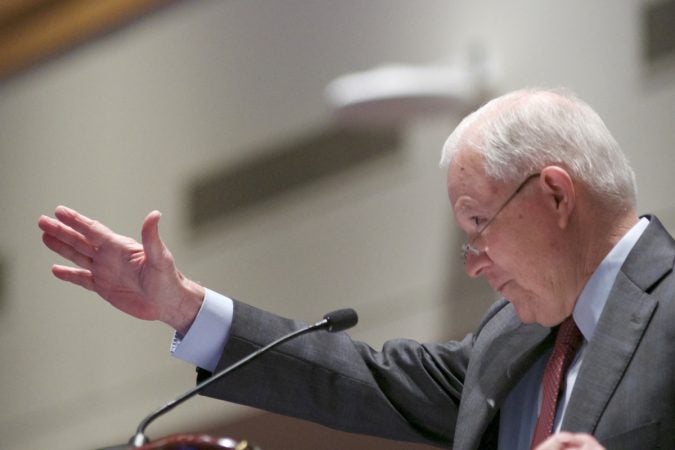
US Attorney General Jeff Sessions delivers his remarks on the Project Safe Neighborhoods during the Major Cities Chiefs Association Fall Meeting, at the Pennsylvania Convention Center in Center City Philadelphia, on Saturday October 21, 2017. (Bastiaan Slabbers for WHYY)
-
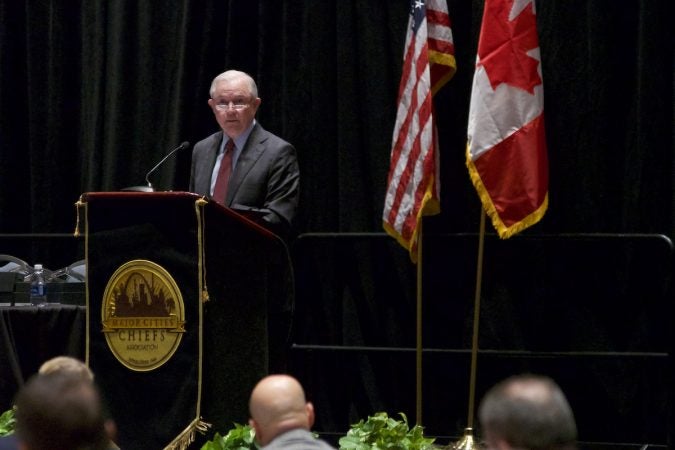
US Attorney General Jeff Sessions delivers his remarks on the Project Safe Neighborhoods during the Major Cities Chiefs Association Fall Meeting, at the Pennsylvania Convention Center in Center City Philadelphia, on Saturday October 21, 2017. (Bastiaan Slabbers for WHYY)
-
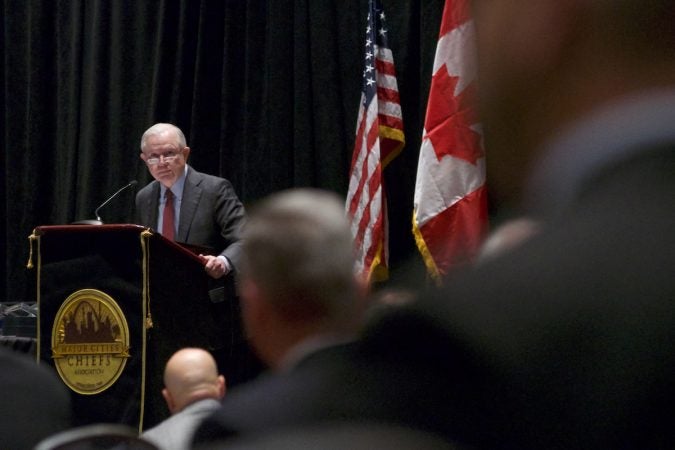
US Attorney General Jeff Sessions delivers his remarks on the Project Safe Neighborhoods during the Major Cities Chiefs Association Fall Meeting, at the Pennsylvania Convention Center in Center City Philadelphia, on Saturday October 21, 2017. (Bastiaan Slabbers for WHYY)
-
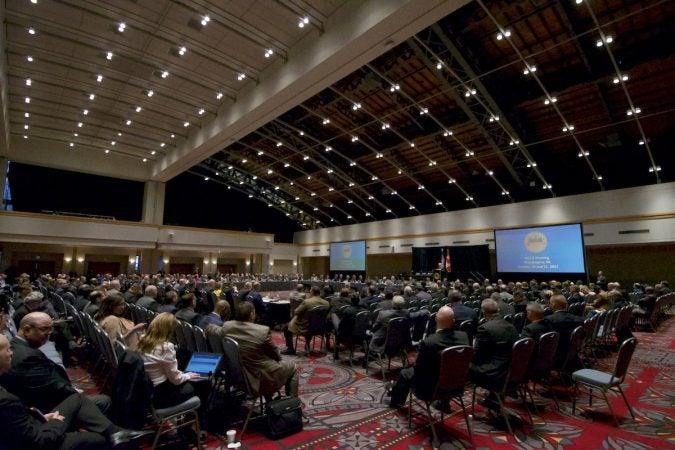
US Attorney General delivers his remarks on the Project Safe Neighborhoods during the Major Cities Chiefs Association Fall Meeting, at the Pennsylvania Convention Center in Center City Philadelphia, on Saturday October 21, 2017. (Bastiaan Slabbers for WHYY)
-

US Attorney General delivers his remarks on the Project Safe Neighborhoods during the Major Cities Chiefs Association Fall Meeting, at the Pennsylvania Convention Center in Center City Philadelphia, on Saturday October 21, 2017. (Bastiaan Slabbers for WHYY)
-
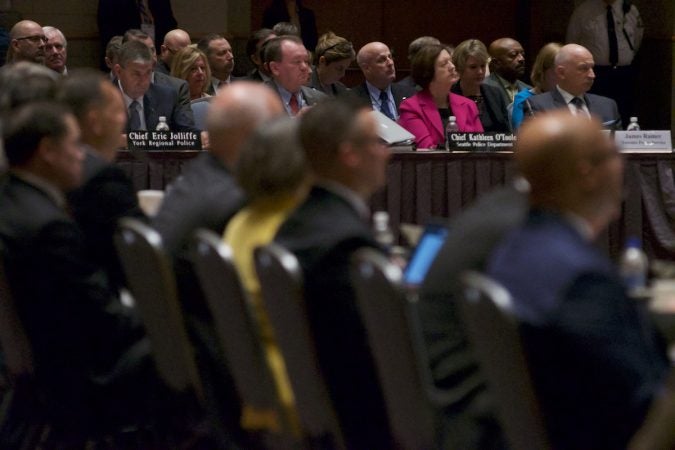
US Attorney General delivers his remarks on the Project Safe Neighborhoods during the Major Cities Chiefs Association Fall Meeting, at the Pennsylvania Convention Center in Center City Philadelphia, on Saturday October 21, 2017. (Bastiaan Slabbers for WHYY)
-
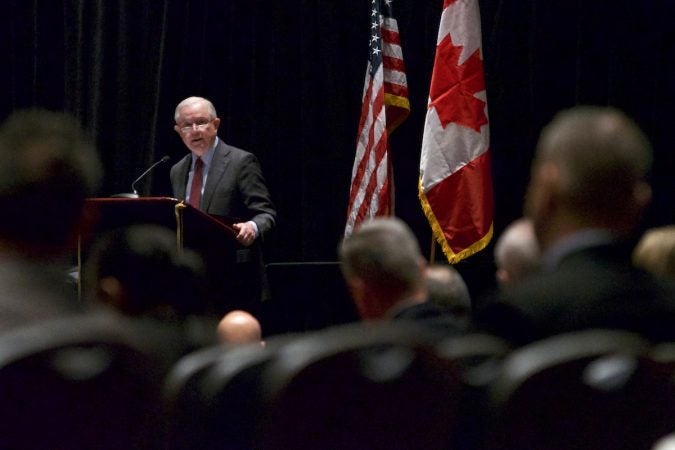
US Attorney General delivers his remarks on the Project Safe Neighborhoods during the Major Cities Chiefs Association Fall Meeting, at the Pennsylvania Convention Center in Center City Philadelphia, on Saturday October 21, 2017. (Bastiaan Slabbers for WHYY)
-
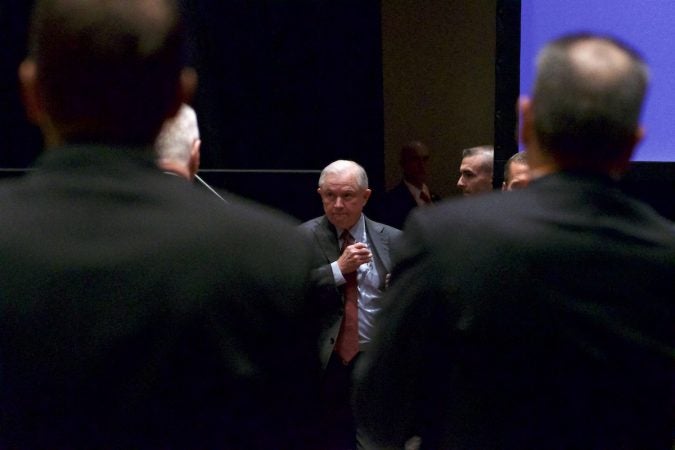
US Attorney General departs after delivering his remarks on the Project Safe Neighborhoods during the Major Cities Chiefs Association Fall Meeting, at the Pennsylvania Convention Center in Center City Philadelphia, on Saturday October 21, 2017.
-
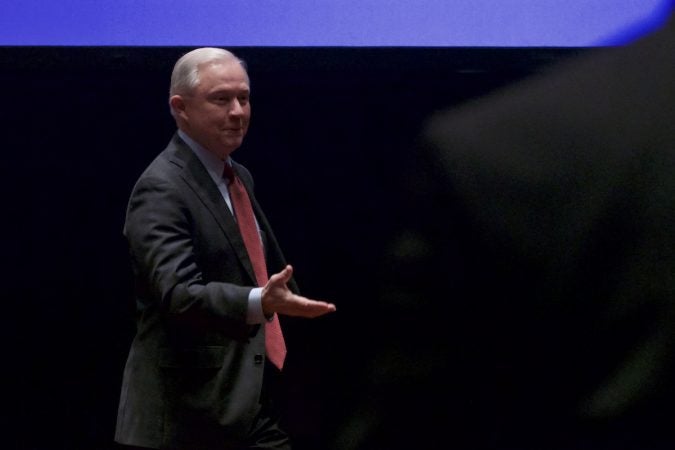
US Attorney General departs after delivering his remarks on the Project Safe Neighborhoods during the Major Cities Chiefs Association Fall Meeting, at the Pennsylvania Convention Center in Center City Philadelphia, on Saturday October 21, 2017.
-

US Attorney General departs after delivering his remarks on the Project Safe Neighborhoods during the Major Cities Chiefs Association Fall Meeting, at the Pennsylvania Convention Center in Center City Philadelphia, on Saturday October 21, 2017.
U.S. Attorney General Jeff Sessions called on Congress at The International Association of Chiefs of Police in Philadelphia on Saturday to revive a Bush-era program that would ramp up the prosecution of drug traffickers and violent gangs.
Sessions told an audience packed with police officers and other top law enforcement officials gathered at the Pennsylvania Convention Center that by upping the funding for a 2001 program called Project Safe Neighborhoods, dozens more federal prosecutors can be hired to aggressively pursue street criminals typically prosecuted by local authorities.
The crackdown, Sessions said, is in response to a rise in homicides and other violent crimes over the past two years.
Statistics from the FBI released last month show that violent crime rose 4 percent from 2015, the second-straight year the level has climbed.
In addition, the murder rate jumped 8 percent, more than 20 percent of the uptick was explained by a surge in gun violence in Chicago.
In Philadelphia, the homicide rate has inched up since 2014, as well, but remains at a historic low, as are national violent crime and homicide rates when compared to decade-ago crime waves.
Sessions noted that President Trump’s 2018 budget asks Congress for funding to hire 300 more assistant U.S. attorneys and requests $100 million for state and local agencies to beef up police departments.
“We will not concede a single block, or a single street corner in the country, to lawlessness and crime. The criminals, the gang-members and drug traffickers should know: We are coming after you,” Sessions told the audience of police officers.
The Justice Department plans to distribute $70 million in crime-fighting grants to cities.
Critics of the lapsed program argue it sent too many low-level criminals to far-away prisons for long terms, even if they were first-time offenders, saying federal prosecutors should be investing resources into perusing major players in crime.
Still, Sessions said the aim of re-upping the program is not to clog federal prisons with low-level law-breakers.
“Our goal is not to fill up the courts, or just fill up prisons. Our goal is not to manage crime, or merely to punish crime,” Sessions said. “Our goal is to reduce crime.”
Justice officials last month announced $20 million in grants to 100 jurisdictions to purchase and implement body cameras to bolster police accountability and improve police-community relations. That’s despite a study released this week showing that the high-tech gadgets have nearly no effect on officer behavior.
Sessions’ Justice Department has been at war with Philadelphia and other so-called sanctuary cities that he says should be punished for not fully complying with requests by federal immigration authorities to extend the detention of people suspected of being in the country illegally.
Sessions has proposed that grant funding be contingent on cities allowing Homeland Security officials to have unfettered access to city jails.
In August, Philadelphia city officials sued Sessions in federal court over his steps to withhold grant money from the city. The lawsuit is still pending.
Addressing the police officials on Saturday, Sessions made no mention of his ongoing legal row with Philadelphia over the sanctuary city issue.
A security official screening attendees outside of Sessions’ speech said a few protesters attempted to pose as press to sneak into the event, but they were all turned away at the door.
Two hours after Sessions left the event, about 50 protesters assembled around the convention center holding signs like “No Good Cop in a Racist System” and chanting “No justice, no peace, no racist police!” as a large phalanx of police officers on bicycles blocked them from moving closer to the conference. By early afternoon, there were no clashes between police and protesters.
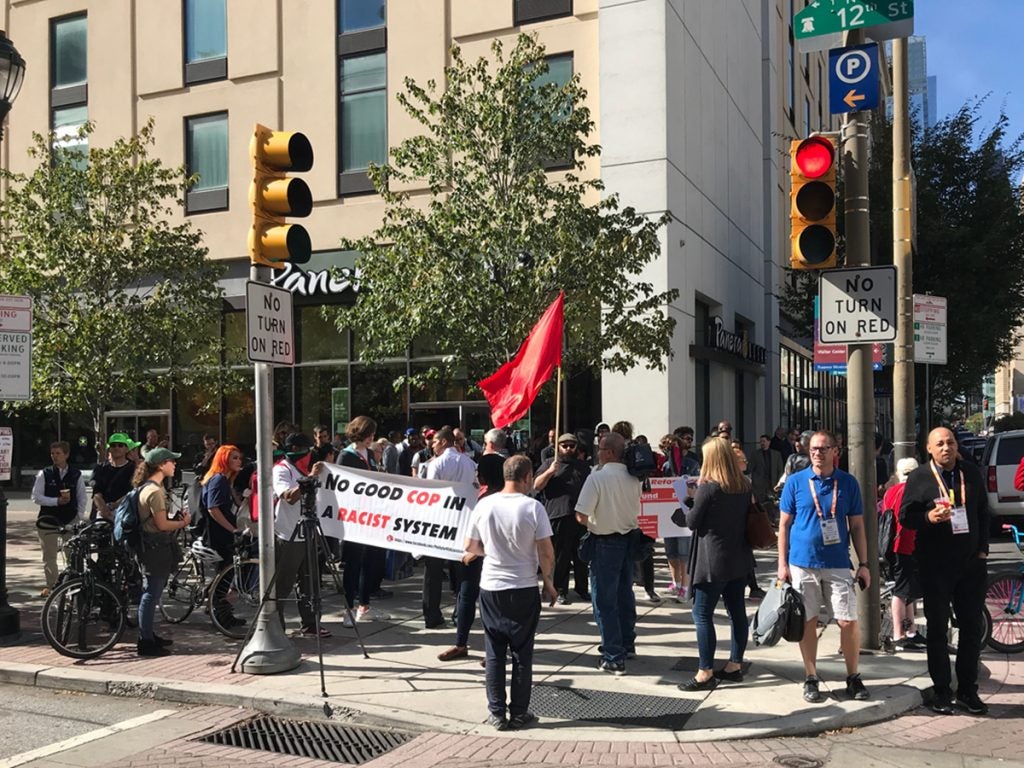
But by late afternoon, the protest heated up, with demonstrators struggling with police near the statue of Frank Rizzo across the street from City Hall.
Some protesters appeared to be bloodied in the clashes, as they wrestled with police and pulled down their bikes standing around the statue of the controversial former mayor and police commissioner.
A police official confirmed that at least five people were detained and two officers sustained minor injuries.
Editor’s note: This story has been updated multiple times to include actions that occurred later in the day, as well as edited for clarity. Thanks for sticking with us through the breaking news cycle.
WHYY is your source for fact-based, in-depth journalism and information. As a nonprofit organization, we rely on financial support from readers like you. Please give today.


